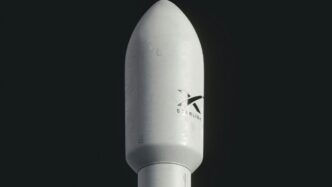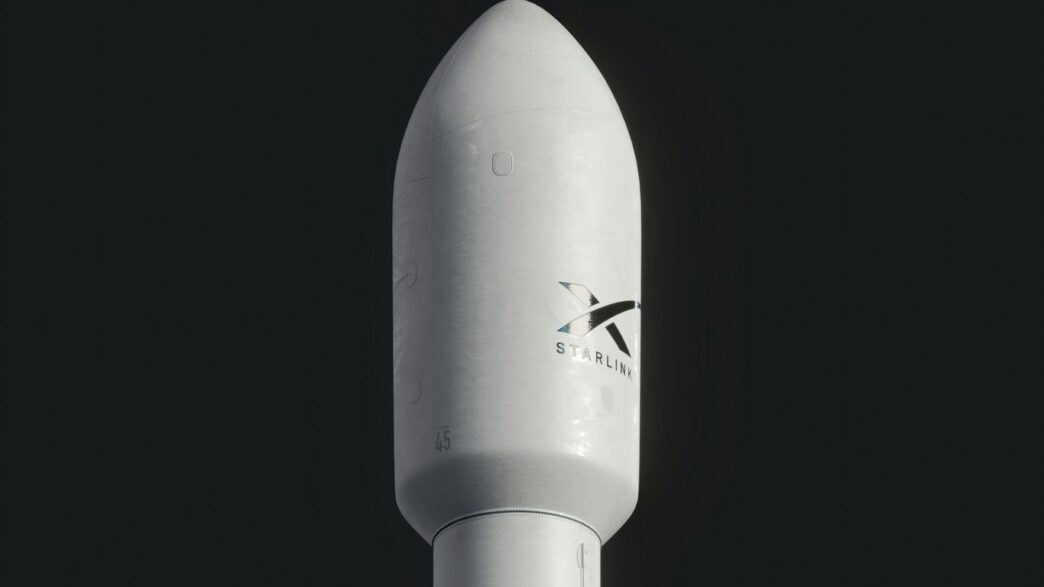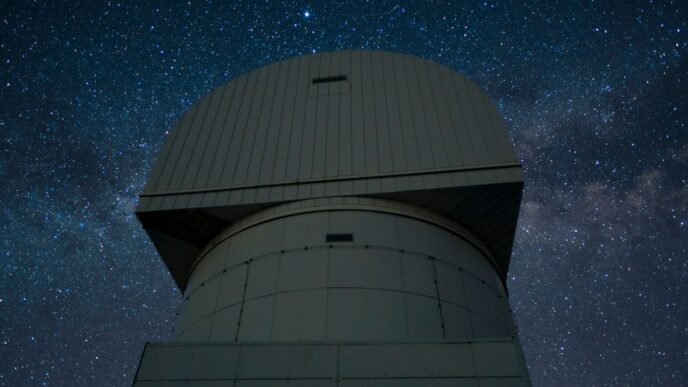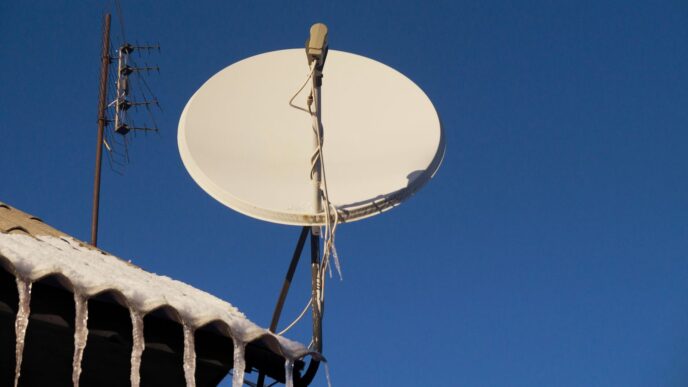So, the FAA dropped some fines on SpaceX recently, and it’s got people talking. It’s not the first time these two have had words, but this latest round seems to be a bigger deal. We’re talking about some serious money, and SpaceX isn’t exactly happy about it. Let’s break down what’s going on with these faa fines spacex and what it means for everyone involved.
Key Takeaways
- SpaceX is facing proposed fines totaling over $633,000 from the FAA for allegedly breaking rules during two 2023 launches.
- The FAA claims SpaceX didn’t follow license requirements, including using an unapproved launch control room and propellant, and skipping a readiness poll.
- SpaceX disputes the FAA’s claims, suggesting the agency is slow to approve changes and might be acting unfairly.
- These faa fines spacex are part of a larger tension between the company and the FAA, particularly concerning the speed of Starship licensing.
- Separately, SpaceX also faces a fine from the EPA for Clean Water Act violations related to wastewater discharge and spills at its Texas facility.
Understanding the Latest FAA Fines Against SpaceX
So, the FAA has proposed some pretty hefty fines against SpaceX, and it’s got a lot of people talking. Basically, the Federal Aviation Administration is saying SpaceX didn’t quite follow the rules for a couple of their rocket launches in 2023. This isn’t the first time the FAA has had issues with SpaceX, but these proposed penalties are significant. It’s all about making sure space launches happen safely, and the FAA has the job of overseeing that. When they think a company isn’t sticking to the safety requirements laid out in their launch licenses, they can step in with fines.
Overview of Proposed Penalties
The FAA has put forward a total of $633,009 in proposed fines. These penalties stem from alleged violations during two separate launches last year. The agency pointed to specific instances where SpaceX apparently deviated from the terms of its launch licenses. It’s a pretty detailed process, and the FAA is laying out exactly what they believe went wrong.
SpaceX’s Response to FAA Allegations
SpaceX, as you might expect, isn’t just accepting these fines without a word. They’ve pushed back, sending letters to lawmakers and stating they don’t believe they violated any regulations. Their take is that the FAA’s own processes for reviewing and approving changes have been slow, and that they informed the agency about the changes they were making. They’re pretty firm in their stance that safety is a top priority for them.
Implications of FAA Enforcement Actions
These kinds of enforcement actions have ripple effects. For SpaceX, it means dealing with potential financial penalties and the public scrutiny that comes with it. It also highlights the ongoing tension between the fast pace of private spaceflight innovation and the regulatory framework designed to keep things safe. For the FAA, it’s about asserting its oversight role and making sure its rules are followed. It really makes you wonder how these two sides will continue to work together moving forward.
Specific Violations Leading to FAA Fines
So, what exactly did SpaceX do that got the FAA’s attention and led to these proposed fines? It boils down to a few key areas where the agency says SpaceX didn’t stick to the rules laid out in their launch licenses. It’s not just about one thing; it’s a pattern of alleged non-compliance that the FAA is flagging.
Launch Control Room and Readiness Poll Issues
This one happened back in June 2023. SpaceX wanted to use a new launch control room, called Hangar X, for a mission sending a satellite called PSN Satria into orbit. They also wanted to skip a specific check, known as the "readiness poll," that’s supposed to happen two hours before liftoff. The FAA says they told SpaceX that these changes weren’t approved in time for the launch. Despite this, SpaceX went ahead and used the new control room and skipped the poll. The FAA sees this as breaking two parts of their license agreement, and they proposed a hefty $350,000 fine for this incident alone.
Unapproved Rocket Propellant Usage
Just a month later, in July 2023, another situation arose. This time, it involved a Falcon Heavy rocket launching the EchoStar XXIV/Jupiter satellite. SpaceX had built a new facility for rocket propellant, essentially a new "propellant farm." They asked the FAA to update their license to allow them to use this new farm. According to the FAA, they notified SpaceX just two days before the launch that the license couldn’t be updated in time. Nevertheless, SpaceX used the new propellant farm for the launch. For this alleged violation, the FAA proposed a significant penalty of $283,009.
Failure to Submit Trajectory Data
This isn’t entirely new territory for SpaceX and the FAA. Back in February 2023, the FAA proposed a $175,000 fine because SpaceX allegedly didn’t submit required data about the rocket’s flight path, or trajectory, at least seven days before a Falcon 9 launch. This data is important for collision analysis, making sure the rocket stays on course and doesn’t pose a risk. Not providing this crucial information on time is a serious concern for launch safety.
The Financial Impact of FAA Fines
So, what’s the damage? The FAA recently proposed some pretty hefty fines against SpaceX, totaling over $600,000. It’s not pocket change, even for a company like SpaceX. These penalties stem from alleged violations of their launch licenses during two separate missions in 2023.
Total Penalties for 2023 Launches
The FAA is looking at a total of $633,009 in civil penalties. This amount is based on what the agency calls "statutorily-set civil penalty guidelines." Basically, there are rules about how much they can fine companies for certain violations, and they’re sticking to them.
Breakdown of Fines by Incident
Let’s break down where this money is supposed to come from:
- Launch Control Room and Readiness Poll Issues: For a launch on June 18, 2023, SpaceX is facing a proposed $350,000 fine. The FAA claims the company used an unapproved launch control room and skipped a required readiness poll two hours before liftoff. This happened during the PSN SATRIA mission.
- Unapproved Rocket Propellant Usage: Another incident in July 2023, involving the EchoStar XXIV/Jupiter mission, has a proposed penalty of $283,009. This fine is related to SpaceX allegedly using a newly constructed, unapproved rocket propellant farm for the launch.
Comparison to Previous FAA Fines
These aren’t the first fines SpaceX has faced from the FAA. Back in February 2023, the agency proposed a $175,000 fine for a Falcon 9 Starlink launch. That one was for not submitting required trajectory data seven days before the launch. It’s interesting to see how these penalties stack up, though the recent ones are significantly higher. It’s worth noting that SpaceX has also faced fines from the Environmental Protection Agency (EPA) for issues related to wastewater discharge and spills into wetlands, which are separate from these FAA actions. The FAA’s focus here is strictly on adherence to launch license terms, and they’ve made it clear that safety drives everything they do.
SpaceX’s Stance on FAA Enforcement
When the FAA came down with proposed fines totaling over $633,000 for alleged violations related to two 2023 launches, SpaceX didn’t exactly roll over. The company has been pretty vocal about its disagreements with the agency’s actions, and it’s not shy about saying so.
Allegations of Regulatory Overreach
SpaceX, and particularly Elon Musk, has pushed back hard against the FAA’s findings. They argue that the agency is overstepping its bounds. In a letter sent to lawmakers, SpaceX stated that it’s their understanding that it’s "highly irregular, and perhaps unprecedented, for a Chief Counsel to be quoted on an enforcement matter." They forcefully reject the idea that they violated any regulations. It seems like SpaceX believes the FAA’s approach is more about control than actual safety.
Claims of Politically Motivated Actions
Adding another layer to the dispute, Elon Musk has suggested that the FAA’s actions might be politically motivated. He’s hinted at "lawfare" and expressed confidence that "discovery will show improper, politically-motivated behavior by the FAA," though he hasn’t offered specific proof for these claims. Musk has also pointed out perceived inconsistencies, like comparing the fines against SpaceX to what he sees as a lack of similar penalties for Boeing’s Starliner program, questioning the fairness of the FAA’s enforcement.
Threats of Legal Action Against FAA
Instead of going through the FAA’s standard administrative procedures, like an informal conference, SpaceX has indicated a willingness to take the agency to court. Musk has publicly stated that SpaceX "will be filing suit against the FAA for regulatory overreach." This suggests a significant breakdown in communication and trust between the two entities, with SpaceX opting for a legal battle rather than trying to resolve the issues internally with the FAA.
Broader Context of FAA and SpaceX Relations

It’s not just about these recent fines, you know? The relationship between the FAA and SpaceX has been a bit of a rollercoaster lately, especially when it comes to getting new projects off the ground. A big sticking point has been the licensing for Starship, SpaceX’s massive new rocket. The process seems to be taking a really long time, and that’s causing some serious frustration over at SpaceX.
Delays in Starship Licensing
Getting approval for Starship’s launches has been a slow burn. SpaceX has been pushing for faster approvals, but the FAA has its own procedures to follow. This back-and-forth has led to significant delays, impacting SpaceX’s ambitious launch schedule. It feels like there’s a constant tension between SpaceX’s need for speed and the FAA’s mandate for safety and regulatory compliance. This ongoing delay in Starship licensing is a major source of friction between the two entities.
Criticism of FAA’s Decision-Making Pace
SpaceX, and Elon Musk in particular, have been pretty vocal about their dissatisfaction with how the FAA operates. They argue that the agency’s decision-making process is too slow and bureaucratic. Musk has even suggested that the FAA’s pace is hindering innovation in the commercial space sector. He’s pointed out that while SpaceX faces scrutiny, other companies seem to get a smoother ride, though the FAA clarifies different regulations apply to different types of flights. It’s a complex dance, and SpaceX feels like they’re being held back.
Industry Calls for Faster Regulatory Processes
It’s not just SpaceX feeling the pinch. Many in the broader space industry are also calling for the FAA to speed things up. The argument is that outdated regulations and slow approval timelines could stifle growth in a rapidly evolving field. Companies need clear, timely decisions, whether they’re positive or negative, to plan effectively. The current system, some argue, isn’t built for the pace of modern space exploration and commercialization. Finding a balance between robust safety oversight and efficient licensing is something the whole industry is watching closely, and it’s a challenge the FAA is grappling with as spaceflight becomes more common. You can see how this plays out in other areas too, like environmental regulations where companies might face fines for certain discharges following settlement communications.
Distinguishing FAA Fines from Other Agency Actions
It’s easy to get confused when different government agencies start handing out penalties, especially when a company like SpaceX is involved in so many different kinds of operations. The fines we’ve been talking about are specifically from the Federal Aviation Administration (FAA), and they’re tied to things like launch licenses and safety protocols for spaceflight. But SpaceX also has to deal with other regulatory bodies, and their rules are different.
For instance, the Environmental Protection Agency (EPA) has also fined SpaceX. These EPA penalties aren’t about launch procedures, but about environmental concerns. One notable EPA fine involved SpaceX discharging wastewater from a launch deluge system without the proper permits. Another incident cited by the EPA was related to spilling liquid oxygen into protected wetlands near their Starbase facility. These are separate issues from the FAA’s purview, focusing on water quality and habitat protection.
Here’s a quick look at how these differ:
- FAA Fines: Primarily concern the safety and operational aspects of launching rockets and spacecraft. This includes things like ensuring proper launch control room procedures, using approved propellants, and submitting trajectory data. The FAA’s role is to protect the public during commercial space activities, which is why they have specific safety regulations for flight crews and operations.
- EPA Fines: Focus on environmental impact, such as water pollution, air quality, and the protection of natural resources like wetlands. These are governed by laws like the Clean Water Act.
It’s important to remember that while both agencies can issue fines, their mandates are distinct. The FAA is concerned with the safety of the skies and the public during launches, while the EPA is focused on the health of our environment. SpaceX has to navigate both sets of regulations, and sometimes, as we’ve seen, they run afoul of one or the other.
Wrapping It Up
So, what’s the takeaway from all these FAA fines against SpaceX? It seems like a bit of a back-and-forth, with SpaceX saying they told the FAA about changes and the FAA saying they didn’t follow the rules. It’s clear that safety is a big deal for the FAA, and they’re holding companies accountable. SpaceX, on the other hand, feels like they’re being held up by slow government processes and are even talking about suing. This whole situation highlights how tricky it can be to balance rapid innovation with strict regulations, especially in a field as new and fast-moving as space travel. We’ll have to keep an eye on how this plays out and what it means for future launches.
Frequently Asked Questions
What are the main reasons the FAA fined SpaceX?
The FAA fined SpaceX for not following the rules in their launch licenses. This included using a launch control room that wasn’t approved for a mission, not doing a required check-in before a launch, and using rocket fuel from a place that wasn’t approved. These are seen as safety-related issues.
How much money did the FAA fine SpaceX?
The FAA proposed fines totaling over $633,000. This amount is for the violations related to two specific launches in 2023. It’s a significant amount, showing the FAA is serious about rule-following.
Did SpaceX agree with the FAA’s fines?
No, SpaceX strongly disagrees with the FAA’s claims. They believe they informed the FAA about the changes made and that the FAA didn’t act fast enough to approve or deny them. Elon Musk has even said SpaceX plans to sue the FAA, calling the fines ‘regulatory overreach’.
Are these the first fines SpaceX has received from the FAA?
No, this isn’t the first time. In early 2023, the FAA also proposed a fine for a different launch where SpaceX didn’t submit important data on time, as required by their license.
Are there other agencies fining SpaceX related to their launches?
Yes, the Environmental Protection Agency (EPA) also fined SpaceX. This fine, over $148,000, was for issues related to wastewater discharges and spilling liquid oxygen into protected areas near their Starbase launch site in Texas. This is separate from the FAA’s fines.
Why is the FAA taking so long to approve SpaceX’s launch plans, causing these issues?
That’s a big part of the problem. SpaceX and others in the space industry feel the FAA is too slow in making decisions about launch licenses. This slow pace can lead to companies making changes without clear approval, which then results in fines. Many believe the FAA needs to speed up its processes to keep up with the fast-moving space industry.










